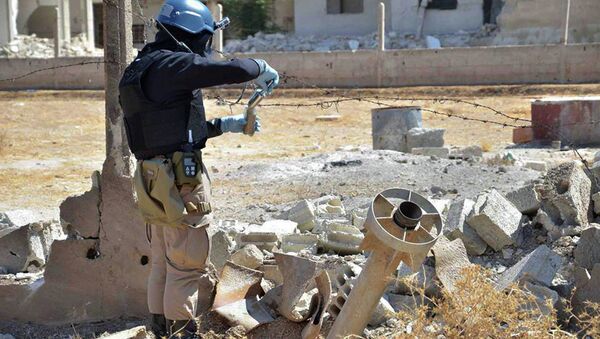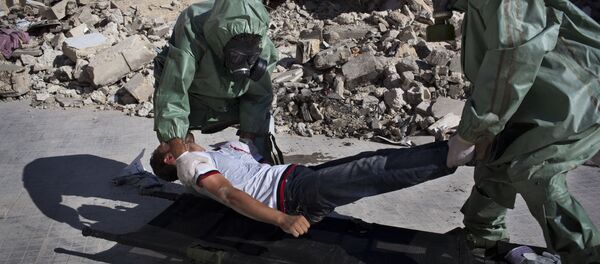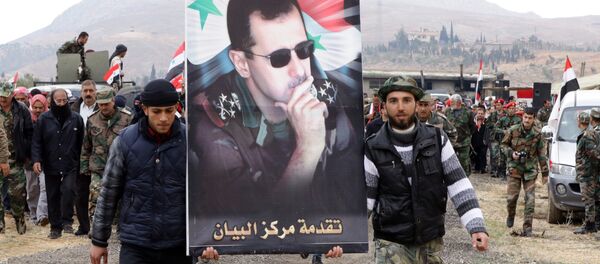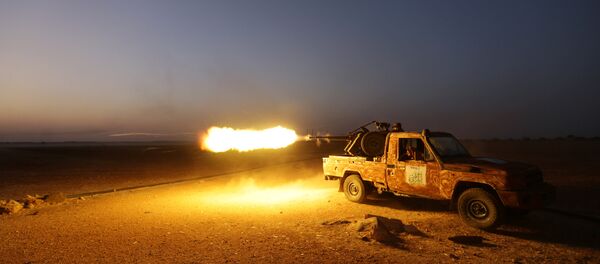Later in the day the White House National Security Council spokesman, Ned Price, issued a statement where he condemned "in the strongest possible terms the Assad regime’s defiance of the longstanding global norm against chemical weapons use and Syria’s abrogation of its responsibilities under the Chemical Weapons Convention, which it joined in 2013."
However Hassan Shemshadi told Sputnik that such claims and condemnations are just "political gaming and a ploy."
"Throughout almost five and a half years of the Syrian crisis, the US has been trying to implement under different scenarios its plan for Syria," he told Sputnik Persian.
"It has been blindly accusing President Assad of various crimes and in so doing trying to discredit Damascus in the eyes of the international community and to push the UN Security and the Organization for the Prohibition of Chemical Weapons (OPCW) to exercise pressure on the Syrian authorities," he said.
In this way the US has been trying to set Syrian military officials and servicemen of the government army against the country's authorities.
"Among the crimes committed by the US and its allies against Damascus there are false accusations of the Syrian government and the Syrian army in the use of the chemical weapons against its civil population," the correspondent said.
He recounted the chronology of the events.
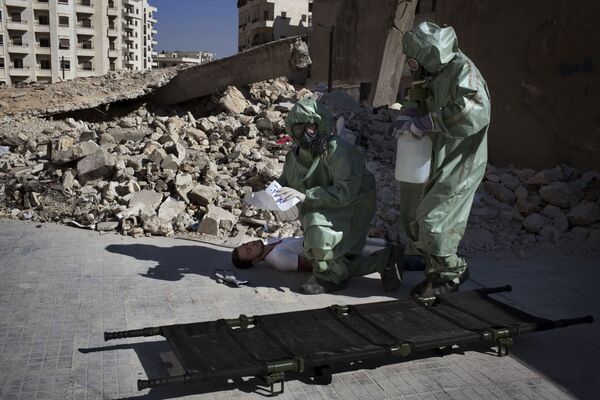
At the very start of the crisis those were the same very terrorist groups who first started claiming the use of chemical weapons. The terrorists even posted a video on the Internet which showed them testing some poisonous gas on rabbits.
The militants then were threatening to eliminate the Syrian authorities, government army and the allies of Bashar Assad with the same very weapons.
About two months after that demonstration chemical weapons were used in the Khan al-Assal suburb of Aleppo, which was at the time occupied by terrorists, resulting in numerous victims among the innocent civilians.
The arrival of the inspectors was delayed for almost one year and three months. When the inspectors finally arrived in Damascus, chemical weapons were used once again against peaceful residents of one of Damascus' suburbs.
As a result, hundreds were and wounded. No common sense will ever accept such a lie, Shemshadi, said, that the Syrian government has been trying to bring in the inspectors for one year. And when they flew in, when they were staying in the country, it suddenly decided to use chemical weapons.
Once again all the accusations fell on the Syrian government. However the correspondent recalls that some of the journalists of the western media had a chance to talk directly with the militants of the terrorist organizations.
The terrorists then confessed that the chemical attacks were their handwork, ordered by their sponsor Saudi Arabia. Moreover, the chemicals needed for the attack were brought to Syria with the assistance of the Saudis.
"All of this is a "burned Syrian card" in the pack of cards of those who benefit from the longstanding war and who present to the international community only what is in their own interests rather than the whole truth," Shemshad said.
When recently the Syrian government with its allies Russia and Iran advanced in the east of the country, the same very claims were heard once again.
There are either accusations of the Assad government in the use of chemical weapons against peaceful civilians or the latest in the series of attempts to exert pressure on Damascus and its allies.
"It only demonstrates that the terrorists and their sponsors are getting weaker, losing their positions, power and force. And they can do nothing but discredit the government and the army in the eyes of the international community, openly lie especially when the Syrian military and their allies launch one successful operation after another," the correspondent said.
And so these accusations are a political ploy and just part of the political and information war the terrorists are waging against the Syrian army and its allies.
But as in the previous five years, they won't make any progress, the correspondent finally stated.

